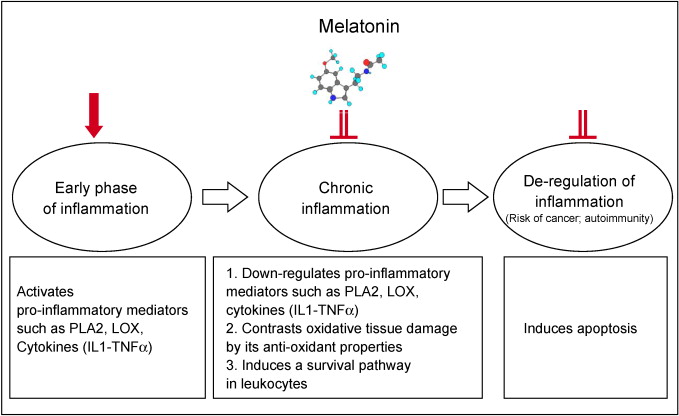
Melatonin has been shown to possess anti-inflammatory effects, among a other powerful effects. Melatonin reduces tissue destruction during inflammatory reactions by a number of means. Thus melatonin, by virtue of its ability to directly scavenge toxic free radicals, reduces macromolecular damage in all organs. “Melatonin also regulates inflammatory and immune processes acting as both an activator and inhibitor of these responses. The interesting timing of pro- and anti-inflammatory effects, such as those affecting lipoxygenase activity, suggests that melatonin might promote early phases of inflammation on one hand and contribute to its attenuation on the other hand, in order to avoid complications of chronic inflammation.”
Melatonin exerts anti-inflammatory effects mainly by inhibiting inflammasome activation. Melatonin also has antioxidant, anti-inflammatory, antiapoptotic, and many other crucial properties2,3
Melatonin upregulates antioxidative defensive systems by increasing the expression or activity of antioxidant enzymes such as superoxide dismutase and glutathione peroxidase23.
Seeing so many diseases of the aging population, it is evident that most have inflammation as a core cause. This makes one think about the possibility that low melatonin levels might be a contributing factor to the progression of many of these diseases. Regardless, it seems apparent that we can use supplementation of melatonin to improve many health conditions based on all the evidence in research!

